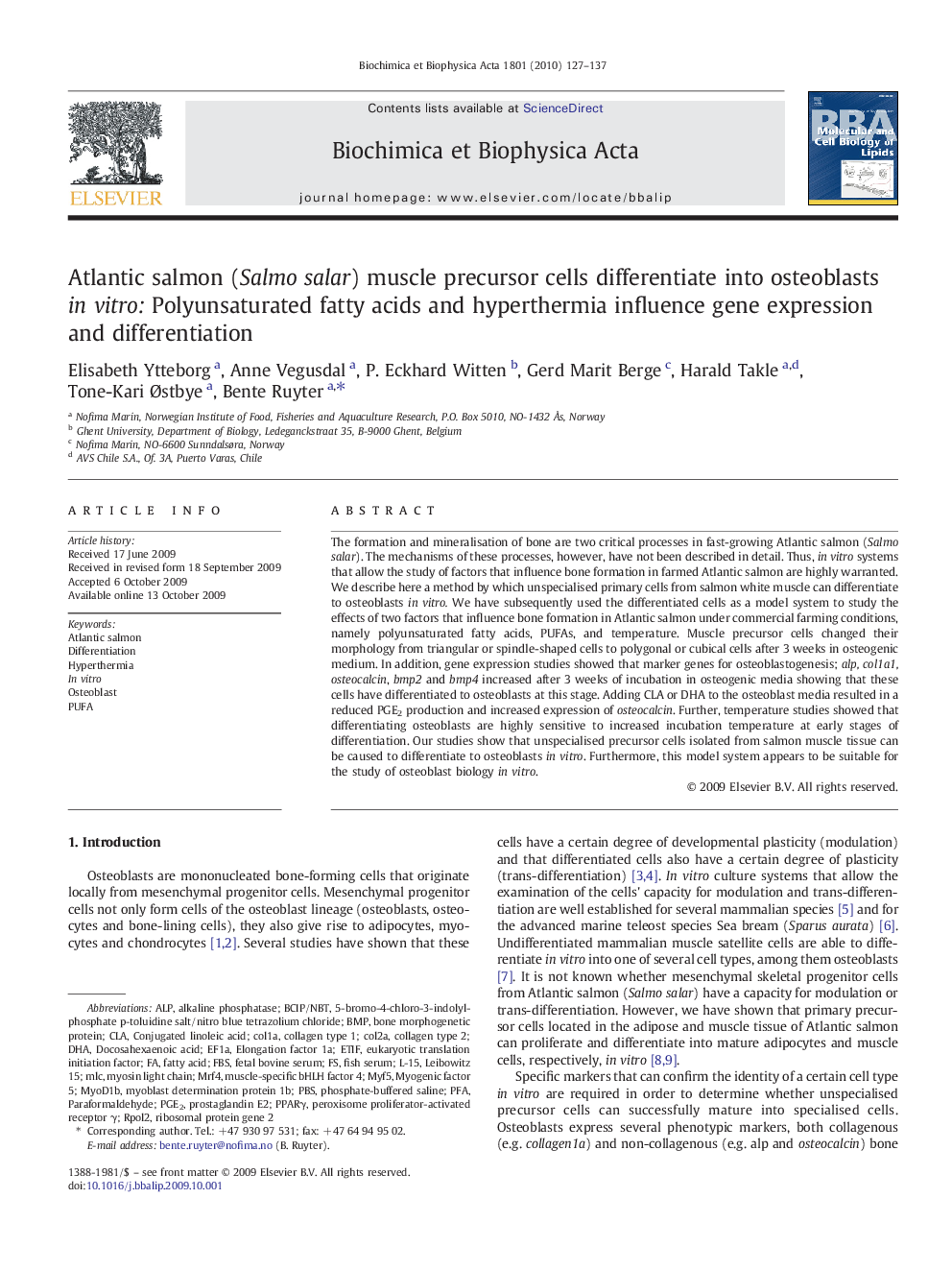| Article ID | Journal | Published Year | Pages | File Type |
|---|---|---|---|---|
| 1949618 | Biochimica et Biophysica Acta (BBA) - Molecular and Cell Biology of Lipids | 2010 | 11 Pages |
The formation and mineralisation of bone are two critical processes in fast-growing Atlantic salmon (Salmo salar). The mechanisms of these processes, however, have not been described in detail. Thus, in vitro systems that allow the study of factors that influence bone formation in farmed Atlantic salmon are highly warranted. We describe here a method by which unspecialised primary cells from salmon white muscle can differentiate to osteoblasts in vitro. We have subsequently used the differentiated cells as a model system to study the effects of two factors that influence bone formation in Atlantic salmon under commercial farming conditions, namely polyunsaturated fatty acids, PUFAs, and temperature. Muscle precursor cells changed their morphology from triangular or spindle-shaped cells to polygonal or cubical cells after 3 weeks in osteogenic medium. In addition, gene expression studies showed that marker genes for osteoblastogenesis; alp, col1a1, osteocalcin, bmp2 and bmp4 increased after 3 weeks of incubation in osteogenic media showing that these cells have differentiated to osteoblasts at this stage. Adding CLA or DHA to the osteoblast media resulted in a reduced PGE2 production and increased expression of osteocalcin. Further, temperature studies showed that differentiating osteoblasts are highly sensitive to increased incubation temperature at early stages of differentiation. Our studies show that unspecialised precursor cells isolated from salmon muscle tissue can be caused to differentiate to osteoblasts in vitro. Furthermore, this model system appears to be suitable for the study of osteoblast biology in vitro.
